8. Thus some uncertainty should not make us stop in order to
investigate further at a specific spot. Presumably we would never
reach any firm conclusion by standing still when digging. Our
pit would only become darker and darker.
Instead we have to
move on, in order to broaden the scope. For instance, by comparing with the G tablet we can see that at the
heliacal Hyades
gate the G text is moving from the end of side b to the
beginning of side a.
|
Nov 21 (506 - 181 = 325) |
→
22 (80 + 242 + 4 = 326) |
|
VISIBLE CLOSE TO THE FULL MOON: |
|
Al Dabarān-2 (The
Follower)
HYADUM I =
γ
Tauri (63.4)
*22.0 = *63.4 - *41.4 |
HYADUM II = δ¹ Tauri
(64.2) |
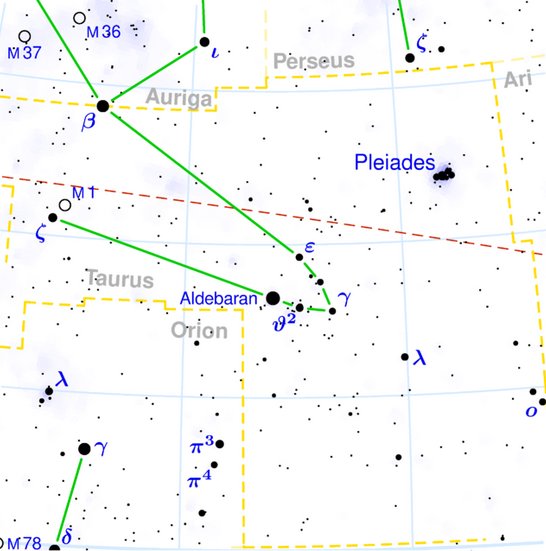 |
|
May 23 (508 = 444 + 64 =
*63) |
24 (*64 = 144 - 80) |
|
'April 26 (481 = 508 -
27) |
27 (*37 = *64 - *27) |
|
"April 12 (*22) |
13 (144 - 41 = 103) |
|
MARCH 20 (*364 = 444 -
80) |
21 (80 = 144 - 64) |
 |
 |
|
Ea1-8 |
Ea1-9 |
| rere
te toki |
rere
ki hau tea - eko te toki |
|
Toki.
Small basalt axe. Vanaga. Stone adze. Van Tilburg.
Ha'amoe ra'a toki = 'Put the adze to sleep' (i.e. hide
it in the temple during the night). Barthel. Month of the
ancient Rapanui calendar. Fedorova according to
Fischer. To'i. T. Stone adze (e to'i purepure
= with the wounderful adze). Henry. The Araukan Indians in
the coastal area of northern Chile, have customs similar to
those on the Marquesas and in both areas toki means
adze according to José Imbelloni. The Araukans also called
their chief of war toki and the ceremonial adze
symbolized his function and was exhibited at the outbreak of
war. In Polynesia Toki was the name of a chief
elevated by the Gods and his sign was the blade of a toki.
Fraser. Axe, stone hatchet, stone tool ...; maea toki,
hard slates, black, red, and gray, used for axes T. P Pau.:
toki, to strike, the edge of tools, an iron hatchet.
Mgv.: toki, an adze. Mq.: toki, axe, hatchet.
Ta.: toi, axe. Churchill. A Maori saying: he iti
toki, e rite ana ki te tangata = though the adze be
small, yet does it equal a man. (Starzecka) |
|
→
INVISIBLY CLOSE TO THE
SUN: |
|
χ
Scorpii (245.1),
YED PRIOR (Hand in Front) =
δ
Ophiuchi,
δ
Tr.
Austr. (245.5) |
YED POSTERIOR (Hand Behind) =
ε
Ophiuchi,
RUKBALGETHI SHEMALI (Northern Knee of the Giant) =
τ
Herculis
(246.6).
δ
Apodis (246.7),
ο
Scorpii (246.8) |
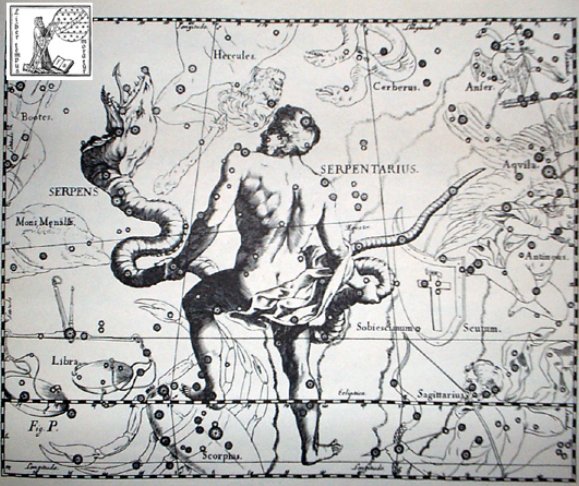 |
In the E text there is an a-bund-ance (→
Bunda) of toki
signs beginning with glyph number 6 on side a. This
phenomenon ought to be compared with glyph number 6 both on
side a and on
side b on the C tablet.
|
Nov 19 (→ 355 - 32) |
20 (324) |
|
VISIBLE CLOSE TO THE FULL MOON: |
|
υ Persei (61.2) |
BEID (Egg) =
ο¹
Eridani
(62.2),
μ
Persei (62.8)
VINDEMIATRIX ( ε Virginis) |
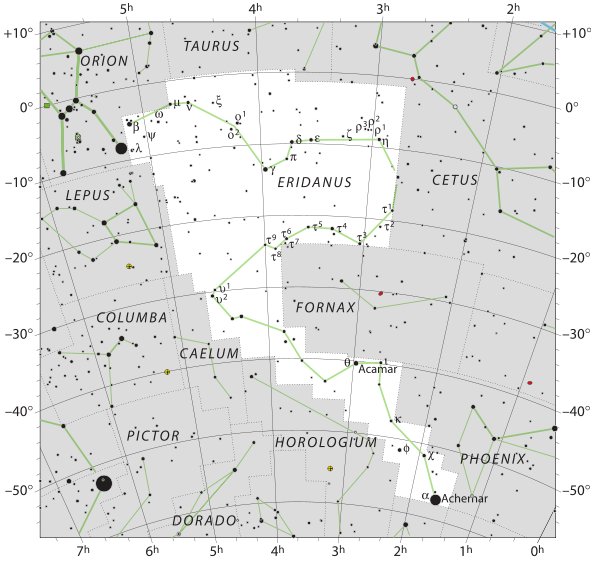 |
|
May 21 (365 + 141 = 506) |
22 (*62) |
|
'April 24 (506 - 27 =
479) |
25 (*35
= 115 - 80) |
|
"April 10 (100) |
11
(*21) |
|
MARCH 18 (442) |
19 (78) |
 |
 |
|
Ea1-6 |
Ea1-7 |
| rere
te toki rere ki uta |
rere
ki te vao |
|
Uta.
Higher up (from the coast, or from another place); i
uta era, further up, up there; ki î te îka i uta,
as there are lots of fish on the beach. Vanaga. 1. Inland,
landward; paepae ki uta, to strand, to run aground;
mouku uta, herbage. 2. To carry; uta mai, to
import; hakauta, to give passage. Campbell.
Vao.
Mgv.: vao, uninhabited land. Ta.: ? [obliterated
text] ... of the valleys. Mq.: vao, bottom of a
valley. Sa.: vao, the bush. Ma.: wao, the
forest. Churchill.
Honui. 1. Person worthy of respect, person of
authority. 2. Livelihood, heirloom, capital;
ka moe koe ki toou hônui, you must marry to ensure
your livelihood (said to a little girl); he hônui mo
taaku poki, this is the heirloom for my son. Vanaga.
Great (hoonui); honui, chief T.; tagata
hoonui, personage; hakahonui, to praise, to
commend. Churchill.
|
|
→
INVISIBLY CLOSE TO THE
SUN: |
|
16h (243.5)
ACRAB (Scorpion) = β Scorpii,
JABHAT AL ACRAB (Forehead of the Scorpion) = ω Scorpii
(243.3), θ Lupi,
RUTILICUS = β Herculis
(243.5),
MARFIK (Elbow) = κ Herculis
(243.7), φ Herculis (243.8) |
ψ
Scorpii (244.6),
LESATH (Sting) =
ν
Scorpii
(244.8) |
 |
I have decided to now and here continue with the E text on the path from the Full Moon at
*65 (MARCH 22, 81 = 145 - 64):
|
Nov 23 |
24 |
25 (→
ANTARES) |
26 (*250) |
27 (→
150 + 181) |
28 (→ 329
+ 3) |
 |
 |
 |
 |
 |
 |
|
Ea1-10 |
Ea1-11 |
Ea1-12 |
Ea1-13 |
Ea1-14 |
Ea1-15 |
|
kua rere ki te
marama -
koia ra -
kua oho ki te marama |
ko agaagata aro huri a hiva |
kua noho i roto i to
vai |
ka
huki koe - mai tae
huki hia |
ko te tagata
vero ki tai |
|
Aga. Work; to work, to
make, to build, to create: O te atua i-aga-ai
i te ragi, i te henua. God made heaven and
earth. Vanaga. Agahuru (hagahuru,
hagauru). Agai (hagai).
Agatahi (aga-tahi) one, (hagatahi);
agatahi ahi atu, day before yesterday;
hagatahi ahi, yesterday. Churchill.
Aro. Face, front, side
(of a figure); ki te aro o ..., to
the front of ... Vanaga. Presence, body,
frontispiece; ki te aro, face to face. P
Pau.: aroga, the visage; ki te aroga,
opposite. Mgv.: aro, presence, before;
i te aro, in the presence of. Mq.: aó,
face, in the presence of, before. Ta.: aro,
face, front, presence, view. It is probable that
more than one word is confounded in alo.
The significations which appear in Southeast
Polynesia are most likely derived from a
Tongafiti alo and do not appear in
Nuclear Polynesia. The alo belly and
alo chief which do occur in Nuclear
Polynesia are also probably Tongafiti, for in
Samoa and Tonga they are honorific and applied
only to folk of rank, a good indication of
borrowing by the Proto-Samoans from Tongafiti
masters. Churchill. In the Hawaiian group, the
western portion or side of an island was called
'the front', ke alo, of the land, and the
eastern side was called 'the back', ke kua.
The reason of such designations must be sought
in the fact of the arrival of the inhabitants
from the west. Fornander.
Huri. 1. To turn
(vt.), to overthrow, to knock
down: huri moai, the overthrowing of the
statues from their ahus during the period
of decadence on the island. 2. To pour a
liquid from a container: ka huri mai te vai,
pour me some water. 3. To end a lament, a
mourning: he huri i te tagi, ina ekó tagi
hakaou, with this the mourning (for the
deceased) is over, there shall be no more
crying. 4. New shoot of banana: huri
maîka. Vanaga. 1. Stem. P Mgv.: huri,
a banana shoot. Mq.: hui, shoot, scion.
2. To turn over, to be turned over onto another
side, to bend, to lean, to warp; huri ke,
to change, to decant; tae huri ke,
invariable; huri ke tahaga no mai, to
change as the wind; tae huri, immovable;
e ko huri ke, infallible; huhuri,
rolling; hakahuri, to turn over;
hakahuri ke, to divine. P Pau.: huri,
to turn. Mgv.: huri, uri, to turn
on one side, to roll, to turn upside down, to
reverse. Mq.: hui, to turn, to reverse.
3. To throw, to shoot. 4. To water, to wet. 5.
To hollow out. Hurihuri: 1. Wrath, anger;
kokoma hurihuri, animosity, spite, wrath,
fury, hate, enmity, irritable, quick tempered,
to feel offended, to resent, to pester;
kokoma hurihuri ke, to be in a rage. 2. (huri
4) hurihuri titi, to fill up. 3. To
polish. 4. (uriuri). Hurikea, to
transfigure, to transform. Churchill. Mq.
huri, resemblance. Sa.: foliga, to
resemble. Churchill.
Hiva. Name of the country
from where, according to tradition, came the
Polynesian immigration of Hotu Matu'a;
nowadays, this name designates any continent or
foreign country: tagata Hiva, foreigner,
person from the mainland. Vanaga. Strange,
alien, foreign; a stranger; kuhane hiva,
Holy Ghost; hakahiva: mata hakahiva,
to look back (? hakahira). Mq., Mgv.:
hiva, iva, a stranger, a person from
another district or country. Pau.: pure-hiva,
a butterfly. Churchill. H.: 1. Entirely black,
as of pigs offered to the gods, a desirable
blackness contrasting with uli and 'ele'ele,
which have pejorative connotations. 2. Choice.
3. A term qualifying coconuts and kava. Polo
hiwa, dark, glistening black, as clouds or
tapa. Ua hala i ke ao polohiwa a Kāne,
passed to the dark clouds of Kāne (death).
Hiwa hiwa, precious, beloved, esteemed,
petted, darling, indulged; favorite. Ka
Mesia, ka hiwahiwa a ke Akua, the Messiah,
the chosen of God. Ho'o hiwa hiwa to
honor, adorn, decorate; to display, as the flag;
to treat as a favorite; festive. He mea
ho'ohiwahiwa i ke akua, a thing to honor the
gods. 'O ka mea ho'ohiwahiwa i kāna kauā mai
kona wā 'u'uku mai, he who delicately brings
up his servant from his childhood. Wehewehe.
Iva. Nine. P Mgv., Mq., Ta.: iva,
id. Churchill.
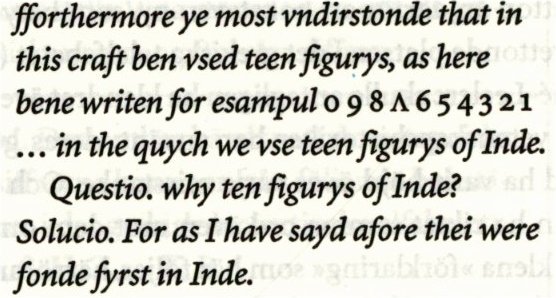 |
|
Net-19 (Crow)
AIN (Eye) =
ε
Tauri,
θ¹
Tauri,
θ²
Tauri (65.7) |
No star listed (66) |
No star listed (67) |
Rohini-4 (The Red One)
/
Pidnu-sha-Shame-4 (Furrow
of Heaven)
/
ANA-MURI-2 (Rear pillar - at the foot of which
was the place for tattooing)
ALDEBARAN = α Tauri
(68.2),
THEEMIN = υ² Eridani
(68.5) |
No star listed (69) |
No star listed (70) |
|
... There was no water in the village. The lakes
and rivers were dry. Raven and Crow, two young
girls who were having their first menstrual
courses, were told to go and draw water from the
ocean. Finding the journey too long, Raven
decided just to urinate into her basket-bucket.
She decieved no one and was severly scolded.
Crow returned much later but with drinking
water. As a punishment, Raven was condemned
never to find water in the summer; only in
winter would she find something to drink. For
that reason the Raven never drinks during the
hot months; she speaks with a raucous voice
because of her dry throat ... |
|
MARCH 22 |
23 |
24 |
25 (84) |
26 |
27 |
Possibly there were overtones in the Polynesian languages, with
not consonants as the backbones but with vowels singing
sweetly together:

|
iva |
Hiva |
hia |
| E hoe te heiva = 'and to paddle (was
their) pleasure'. Henry. |
Aue. Ah, alas. Aueue, oh. P
Pau., Ta.: aue, alas. Mgv.: aue, auhe, alas.
Mq.: aue, oh, alas; auhe, a sigh. Exclamation in
general representing the most primordial type of speech, it seems
that this may be reduced to recognizable elements. The e is
throughout these languages a vocative or hailing sign, commonly
postpositive in relation to the person hailed. In the examination of
au we have shown that the primal first person singular
designation is u. With the comparatively scanty material
afforded by this vocabulary we may not attempt ot define the use of
a but we have no hesitation in noting that proof based on
wider studies will show it to have, inter alia, a
characteristic function as a word-maker. In a very high degree,
then, a-u-e is represented by a common English interjection
'oh my!' in which oh = a, my = u, and e = !.
Churchill. What is this cry
which our primitive islanders share with the animals? Look at its
elements, all full-throated. First we have a, the sound of
mouth open, fauces open, lungs full of air. As air expires the sound
recedes in the mouth towards the palate and we find the u.
Last comes the conscious finish of the utterance, the muscles begin
to retract, the sound-making point is forced forward and the sound
is e. If the man had but a few more cubic centimeters of lung
capacity he could attain cow volumne for his cry, or interjection,
since it amounts to the same thing. Churchill 2.
When the new moon appeared women assembled and
bewailed those who had died since the last one, uttering the
following lament: 'Alas! O moon! Thou has returned to life, but our
departed beloved ones have not. Thou has bathed in the waiora a
Tane, and had thy life renewed, but there is no fount to restore
life to our departed ones. Alas ... (Makemson)
As to the expression of Metoro: ko te tagata
vero ki tai it might be an allusion to the
fate of the king (here simply te tagata) when he no longer
would be able to catch the solstice spear (vero) and therefore
would be destined to 'go to the fishes', i.e. to become a fish at
the back side down below
instead of a bird high up.
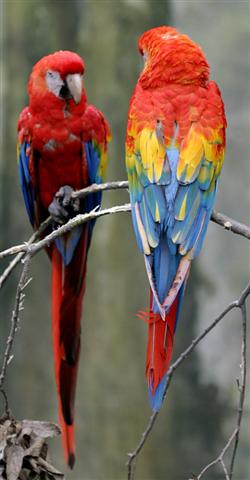
... Now birds and fishes are born under the sign
of the Yin, but they belong to the Yang. This is why
birds and fishes both lay eggs. Fishes swim in the waters, birds fly
among the clouds. But in winter, the swallows and starlings go down
into the sea and change into mussels ...
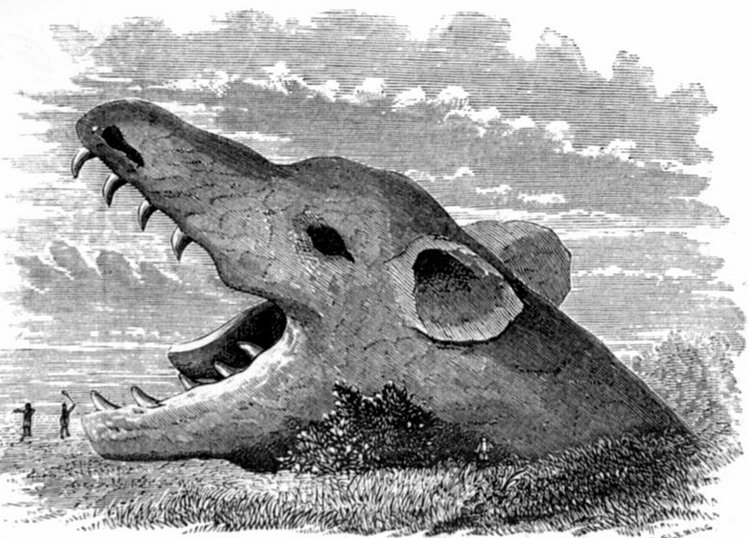
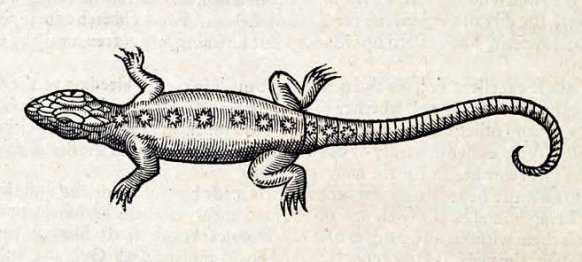
Vero. To throw, to hurl (a lance, a spear). This word
was also used with the particle kua preposed: koía kua
vero i te matá, he is the one who threw the obsidian [weapon].
Verovero, to throw, to hurl repeatedly, quickly (iterative of
vero). Vanaga. 1. Arrow, dart, harpoon, lance, spear, nail,
to lacerate, to transpierce (veo). P Mgv.: vero, to
dart, to throw a lance, the tail; verovero, ray, beam,
tentacle. Mq.: veó, dart, lance, harpoon, tail, horn. Ta.:
vero, dart, lance. 2. To turn over face down. 3. Ta.:
verovero, to twinkle like the stars. Ha.: welowelo, the
light of a firebrand thrown into the air. 4. Mq.: veo, tenth
month of the lunar year. Ha.: welo, a month (about April).
Churchill. Sa.: velo, to cast a spear or dart, to spear. To.:
velo, to dart. Fu.: velo, velosi, to lance.
Uvea: velo, to cast; impulse, incitement. Niuē:
velo, to throw a spear or
dart. Ma.: wero, to stab,
to pierce, to spear. Ta.: vero,
to dart or throw a spear. Mg.: vero,
to pierce, to lance. Mgv.: vero,
to lance, to throw a spear. Mq.: veo,
to lance, to throw a spear. Churchill 2.
... A vestige of the practice of putting the king
to death at the end of a year's reign appears to have survived in
the festival called Macahity, which used to be celebrated in
Hawaii during the last month of the year. About a hundred years ago
a Russian voyager described the custom as follows: 'The taboo
Macahity is not unlike to our festival of Christmas. It
continues a whole month, during which the people amuse themselves
with dances, plays, and sham-fights of every kind. The king must
open this festival wherever he is. On this occasion his majesty
dresses himself in his richest cloak and helmet, and is paddled in a
canoe along the shore, followed sometimes by many of his subjects.
He embarks early, and must finish his excursion at sunrise. The
strongest and most expert of the warriors is chosen to receive him
on his landing. The warrior watches the canoe along the beach; and
as soon as the king lands, and has thrown off his cloak, he darts
his spear at him, from a distance of about thirty paces, and the
king must either catch the spear in his hand, or suffer from it:
there is no jesting in the business. Having caught it, he carries it
under his arm, with the sharp end downwards, into the temple or
heavoo. On his entrance, the assembled multitude begin their
sham-fights, and immediately the air is obscured by clouds of
spears, made for the occasion with blunted ends. Hamamea (the
king) has been frequently advised to abolish this ridiculous
ceremony, in which he risks his life every year; but to no effect.
His answer always is, that he is as able to catch a spear as any one
on the island is to throw it at him ...
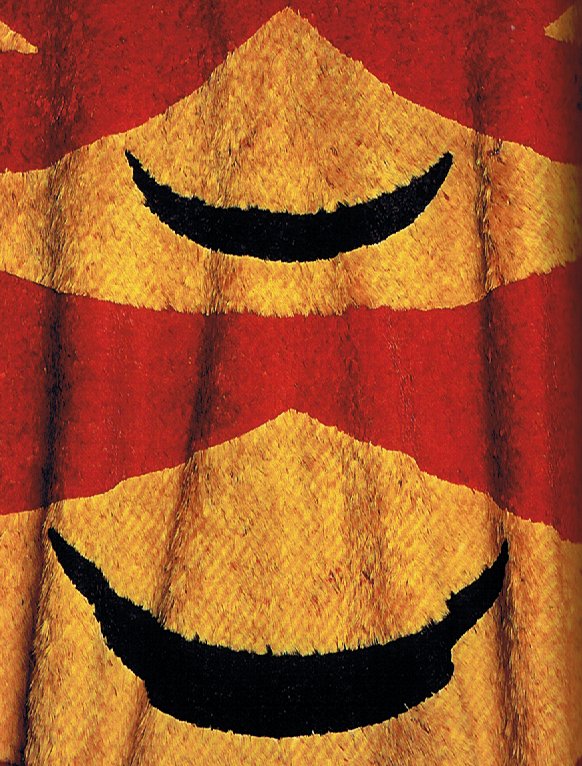
|


















